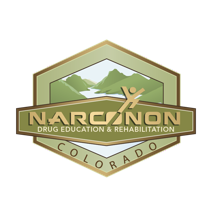How to Support A Loved One While They Are Going through Rehab

Going through residential addiction treatment is not an easy task for a number of reasons. It is hard to be away from home for an extended period of time and it is difficult learning how to navigate life without the use of drugs or alcohol. Add to that the task of working on the problems that were avoided for a long time and let’s just say that, although worthwhile, it can be a challenge.
There are many things that factor into the likelihood of a person’s success after leaving rehab, but the most influential thing is perhaps how much a person is able to focus on getting better during treatment. If there is one thing a family member can do to help their loved one get the most out of their time in rehab it is being supportive. This makes such a huge difference in a person’s experience and what they get out of their program.
So how can a person help their loved one get the most out of their time in rehab? Here are some common things that can be done to be supportive:
Give encouraging phone calls.
One of the easiest things that you can do is to call your loved one and to show them that you care. Sometimes just hearing a friendly voice from home makes a big difference in someone’s day. Many programs will have a period of no phone calls during the initial phase of treatment. This is done to ensure that the person is able to take some time to focus on themselves while getting through the difficult early days. If this is the case then please be respectful of the facility’s policy and understand that it is done in the best interest of your loved one. Once you are able to make phone calls, do your best to keep them as encouraging as possible.
Send letters, cards, and care packages.
Getting a letter or card with a handwritten note can brighten any person’s day. If you are able to send a care package, this is even better. Just make sure to check with the treatment center before sending anything as there is often a list of items that will not be allowed into the facility. By making sure you are following the treatment center’s policies prior to sending the package you can help avoid any unnecessary upsets.
Educate yourself on the nature of addiction.
It is a good idea to learn more about addiction and the recovery process. There are many books, websites and support groups available for people who have loved ones that are struggling with addiction. The more you learn about addiction the better equipped you will be to support and empathize with your loved one.

Help take care of things at home when possible.
Residential addiction treatment requires a lot of focus and self-growth. These things can be hard to do when worried about every little thing that is going on back home. When possible do as much as you are able to help take care of things like bills, childcare, pet care, home care, etc. while your loved one is in treatment. When possible it helps to divide responsibilities up among a team.
Never call them while under the influence of drugs/alcohol.
Hearing someone under the influence of drugs or alcohol while in rehab can be a heavy trigger for people that are just starting out on their recovery process. Not only is it thoughtless to call someone who is in treatment while under the influence, it can also be very destructive to their progress.
Show compassion and don’t be discouraging.
Addiction recovery is a wonderful thing with extreme benefits but the road getting there isn’t an easy one. This is why it is so important that loved ones show compassion and encouragement to people while they are in treatment. Never discourage someone who is in rehab by saying things like “you’ll never change”, “we’ll see if it lasts”, “you really screwed everything up” during phone calls. While it is important to work through family issue, being discouraging does nothing to help.
Understand that the recovery process will have its ups and downs.
There are going to be days that the person will have lots of wins and gains and other days where things are hard and they want to leave. Understand and expect that your loved one is going to be on an emotional roller coaster during the course of their treatment. This is very normal and with time should level out.

Speak with staff on what follow up discharge instructions the person has.
Make sure you are on the same page with your loved one about their discharge instructions before they leave treatment. When possible, work with the staff at the treatment facility to learn what you need to do once your loved one leaves to help with the transition back home and improve their chances for success.
Let them know how proud you are of them for the hard work they are doing.
The simple sentence, “I’m proud of you” goes a long way. Something like this can make all the difference to a person that is going through something difficult. It acknowledges that you understand that what they are going through isn’t easy but that you admire how they are doing it anyways. Always let your loved one know how proud you are of the progress they are making.
If possible attend their program graduation ceremony.
Most addiction treatment centers will have a graduation ceremony for people to attend upon completion. This is a very special event that acknowledges all of the hard work it took to finish the program. If you are able to make it then do so. This will show your loved one your love for them and your support for their important achievement.


